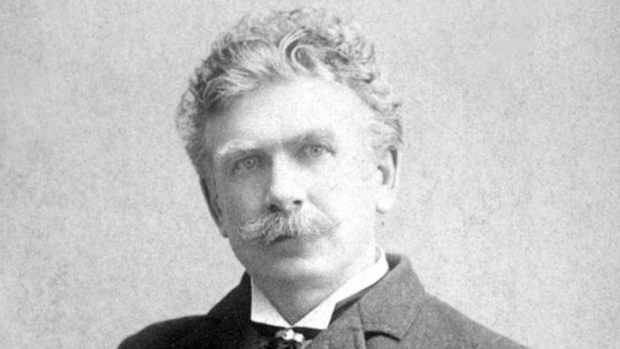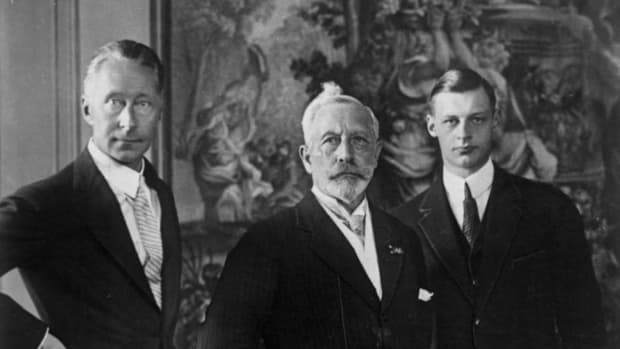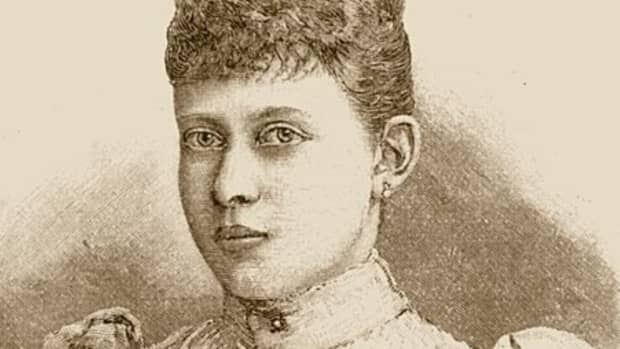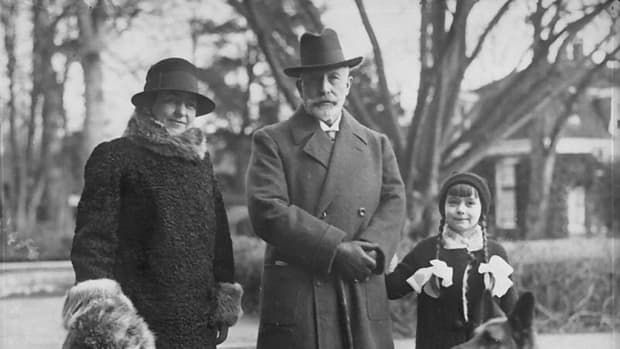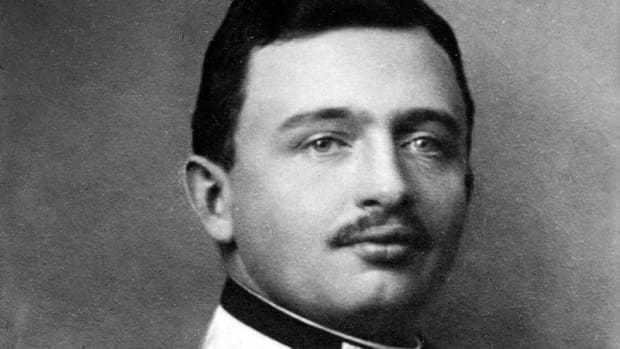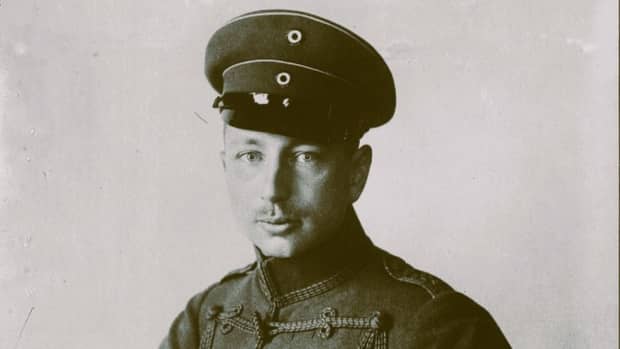Kaiser Wilhelm I: The First German Emperor
The Hohenzollern Dynasty's Prince Wilhelm
Prince Wilhelm Friedrich Ludwig of the House of Hohenzollern was born on the 22nd of March 1797 at the Kronprinzenpalais, Berlin, in the Kingdom of Prussia. He was the second son and the second of nine children born to King Friedrich Wilhelm III of Prussia and Princess Luise of Mecklenburg-Strelitz.
Wilhelm and his older brother Friedrich were educated together by Johann Friedrich Gottlieb Delbrück. At age nine, Wilhelm was made a lieutenant in the Prussian Army. He was conservative by nature, and he lived simply throughout his life.
Queen Luise, "the soul of national virtue," died suddenly on the 19th of July, 1810, from an unidentified illness that was probably related to a sore on her neck resulting from an unsuccessful operation.
In 1824, Friedrich Wilhelm III married Countess Auguste von Harrach morganatically (unequal rank; royal to commoner). Auguste was titled Princess of Leignitz rather than his queen.
Wilhelm Serves in the Prussian Army
In 1813 the Prussian Army's Colonel Johann Emil Georg von Brause was placed in charge of Wilhelm's education, and the following year the royal participated in his first battle against Napoleon Bonaparte's army. Wilhelm distrusted and disliked the French for the rest of his life.
He won the Iron Cross for his actions during the Battle of Bar-sur-Aube in February 1814, and he was raised to the rank of captain. The next year saw him promoted to major, and he was given the command of a battalion. He fought under Blücher at the Battle of Waterloo on 18th June 1815.
In 1816 he rose to commander, and two years later, he became a general-major. Wilhelm was installed as the official spokesman for the Prussian Army in the House of Hohenzollern. By 1825 he was a commanding general. His final promotion was to field marshal in 1854.
During the summer of 1817, Wilhelm escorted his sister Charlotte to St. Petersburg, Russia. Through her marriage to their third cousin Tsarevich Nicholas, Tsar Nicholas I of Russia, from 1st December 1825, she was proclaimed Tsarina Alexandra Feodorovna.

The Prussian court decided that Eliza Radziwill was not noble enough to marry Wilhelm. He married Augusta of Saxe-Weimar-Eisenach.
Wikipedia Public Domain
Eliza Radziwill: The Love of Wilhelm's Life
On 28th October 1828, Wilhelm unenthusiastically married Augusta, the second daughter of Grand Duke Karl Friedrich of Saxe-Weimar-Eisenach and Maria Pavlovna, Tsar Nicholas I's sister. Augusta first met Wilhelm in 1826 when she was fifteen, and Wilhelm concluded that he preferred her older sister Marie. Unfortunately for him, Marie was already married to his brother Karl.
The marriage to Augusta was contracted to prevent Wilhelm from pursuing the Polish princess Eliza Radziwill who he'd been forbidden to marry. The Prussian court felt that she was not sufficiently noble because her ancestors had purchased their titles from Emperor Maximilian I.
Rumours had spread that Eliza was to be adopted by a top-tier aristocratic family and even Tsar Alexander I of Russia so that she could marry Wilhelm, but he was forced to renounce her. He wrote to Charlotte in Russia that "One can love only once in life, really." Eliza never married; she died of tuberculosis in 1834.
Eliza allegedly gave birth to a daughter fathered by Wilhelm named Agnes. An Agnes Kroll (her parents' or adoptive parents' surname) exists in the Berlin records, but we don't know whether she was Wilhelm and Eliza's child.
The public believed that Wilhelm and Augusta were happily married. They had two children, Friedrich and Louise, but problems emerged early in the marriage.
King Friedrich Wilhelm IV's Regent
Intelligent and liberally minded Augusta was given few royal duties, and she chaffed at the militaristic and conservative Prussian court in Berlin. Wilhelm lamented Augusta's "lack of femininity," and he admitted to his sister Charlotte that "the princess is nice and clever, but she leaves me cold."
On the 7th June 1840, Wilhelm's father died, and his older brother Friedrich Wilhelm became the King of Prussia. Friedrich and his wife had no children, so Wilhelm was made Prince of Prussia as the heir to the throne.
During the 1848 revolutions across Europe, Wilhelm was instrumental in suppressing revolts in Prussia and Baden. His severe approach earned him the nickname Kartätschenprinz or Prince of Grapeshot.
Wilhelm and his family relocated to Koblenz when he was appointed the Governor-General of the Rhine Province in 1850. Four years later, Wilhelm was installed as the Governor of the Federal Fortress of Mainz.
They returned to Berlin in late 1857 when King Friedrich Wilhelm IV suffered a devastating stroke. Wilhelm acted as Friedrich's regent from January 1858. This "temporary" arrangement lasted until Friedrich's death and Wilhelm's accession on 2nd January 1861. Wilhelm I's coronation was held in the far east of his realm in the Prussian capital of Konigsberg, today Kaliningrad in Russia.

King Friedrich Wilhelm IV of Prussia was Wilhelm I's older brother and predecessor. Wilhelm acted as regent after Friedrich's 1857 stroke.
Wikipedia Public Domain
Kaiser Wilhelm I of Germany, King of Prussia
Wilhelm I installed Otto von Bismarck as his Minister-President. Ambitious and overbearing, Bismarck was answerable to Wilhelm and not to parliament.
Bismarck ran the political body of Prussia, and whenever he was not content with the king or he felt undermined by the liberal influence of Queen Augusta, his repeatedly successful tactic was to threaten to resign. Wilhelm normally conceded defeat to his minister. As kaiser, he commented, "It is difficult to be emperor under such a chancellor."
Victory during the Franco-Prussian War of 1870 (a war that Bismarck had adeptly and dubiously engineered) meant that the dream of a unified Germany transforming into an empire was realised. Wilhelm was the first kaiser or emperor of the German Empire. The 18th January 1871 was the official date of the empire's creation. Otto von Bismarck drafted a new constitution, and he installed himself as the first chancellor of the German Empire.
1888: The Year of Three Kaisers
Kaiser Wilhelm and Kaiserin Augusta were popular with the German people because they lived simply. Although Wilhelm faced a few assassination attempts, he was widely accepted as the embodiment of "Old Prussia."
Wilhelm's health began to fail, and on 9th March 1888, just two weeks before his 91st birthday, he passed away. He was laid to rest at Charlottenburg in Berlin. Augusta died on 7th January 1890, during an influenza pandemic. She was buried beside her husband.
Their son Friedrich and his wife Vicky (Victoria, Queen Victoria and Prince Albert's eldest daughter) had a tragically short reign that lasted ninety-nine days. Friedrich was dying from throat cancer when he became Kaiser Friedrich III. He died on 15th June 1888.
The third and last kaiser of the German Empire was Friedrich and Vicky's son and warmonger Wilhelm II. Wilhelm I and Otto von Bismarck wouldn't have dreamed that "Kaiser Bill" would cause so much death and destruction, the fall of the House of Hohenzollern and an end to their forty-seven-year-old German Empire.
Sources
- Wilhelm I, German Emperor and King of Prussia | Unofficial Royalty
- William I | emperor of Germany | Britannica
- William I (emperor of Germany and king of Prussia) | Encyclopedia.com
This content is accurate and true to the best of the author’s knowledge and is not meant to substitute for formal and individualized advice from a qualified professional.
© 2023 Joanne Hayle



